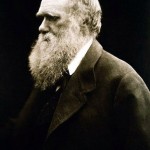What our schools and universities teach in the sciences?

This is the year of Charles Darwin’s 200th year anniversary. February 12, 2009, was Darwin’s 200th birthday. And the 150th anniversary of The Origin of Species falls this autumn.
There are a spate of articles and even books on Charles Darwin, about his theory and also much about what he said and what his evolution theory means today. We wondered: do our Indian schools, colleges and universities care to celebrate this momentous occasion? Are there debates and celebrations? What sort of sciences is being taught in our education system?
Of course, we don’t have any information, as we have seen in the newspapers or the TV channels, Newspapers and magazines, more so in the regional languages, are in a sorry state if we take the Tamil language media as a case in point.
There is practically no single article or debate or any controversy about Darwin’s theory or about what is evolution, if it means anything to the younger generation or ironically for the more mature audiences?
That must give us, educators and the otherwise more elite groups of the middle classes and others heading the more responsible bodies like the universities. What we see is the opposite of sheer trivialization of living. Advocates in TN are on the rampage. Activists in Karnataka are on the rampage of another kind. The Ramsena are out on attacking young women who went to enjoy themselves in a pub. There are other activities that hit the headlines.
In the distant world, the situation seems more tragic. In the Swat valley in Pakistan, the girl’s schools are being closed down by the Taliban. In the more developed and more enlightened world, there are different types of debates when it comes to discussing Darwin and his theories.
Richard Dawkins, the living expert and exponent of evolution, the author of such landmark books like, The Selfish Genes, God Delusion and other controversial best-sellers, argues in The Times Literary Supplement(TLS February 13 2009)in reviewing a latest book on Darwin theory(Why Evolution is true? by Jerry Coyne, OUP) says there are certain timely questions. And they are rather very serious questions! What are they?
Dawkins says people ask not just ordinary people, great scientists and philosophers. They ask: evolution is just a theory, one more theory and it can be equally false as any theory is supposed to be capable of falsification.
For Indian readers who might not be experts or philosophers the current think, since the days of Karl Popper is: a theory’s worth is that it is true or capable of being true only as far as it is capable of being falsified, till it is falsified!
Is evolution a science theory? Then, more so it is such a scientifically capable of being proved and then only it is a science theory. In fact, there are very serious thinkers who argue that logic and evidence is not enough to prove a theory. There are believers who say why suppress the “intuitive mind” with your logic and evidence? It is a male and masculine oppression of otherwise spiritual mind! The church, religious groups in the USA, the advanced society in the world (?) raise such objections to teach evolution in the US schools!
Yes, Dawkins quotes statistics to show that in the UK 69 per cent of people(MORI poll)want evolution to be taught in schools, while in the USA(Pew poll) 40 per cent believe that evolution is not rue and that the world existed as it is since the beginning of time.”God created human beings within the last 10,000 years or so”(Gallup poll).
There was a discussion group of science teachers in the USA, they met at the Centre for Science Education at Emory University in Atlanta and they exchanged notes and they were very revealing. Students “burst into tears”! For what?
For teaching evolution! They wanted to be taught “creationism”, “intelligent design”, another terms for God created the world, as taught by the Bible and other religions.
Islam and Christianity oppose teaching of evolution. So, what do you do?
What is happening in the Indian schools? What is the stand of our various religious groups?
So, the teaching of science, the discoveries of genetics and much else that had helped the evolution of biological sciences, the great many progress we have made in medicine, drugs and the treatment of various illnesses and diseases need to be studied and taught in the class rooms and outside on the public platform.
There is much interesting material on Charles Darwin, a wonderful man, a human being. His life and work inspires and anyone who reads him in the year of his bicentenary would be much benefitted.
We hope our educators, our universities, our colleges and schools would wake up. And set time apart, from the bustle of our exam schedules and much else and devote serious time for teaching and learning about the greatest discovery of man, a study of his own past and his own potential future.
There is nothing more, nothing else to study in the year of his anniversary in our schools and universities.
Image Source: commons.wikimedia.org